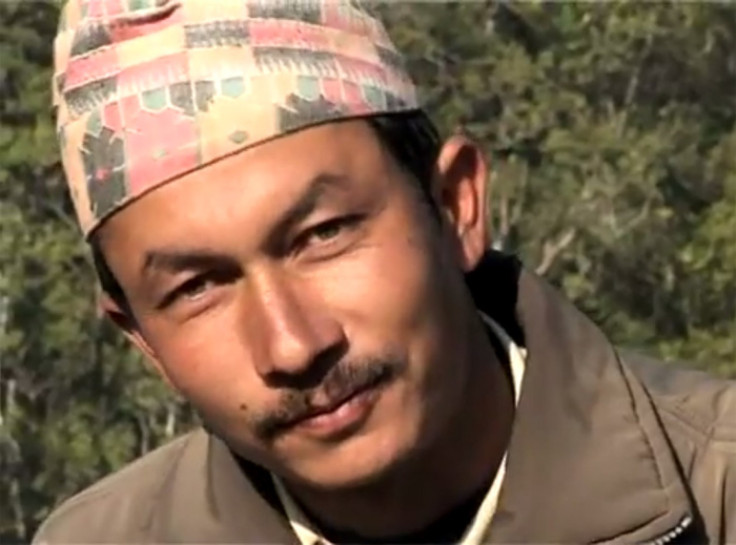Legacy Of Civil War: Nepalese Journalists Living In Fear Of Ruling Maoists

Almost two-dozen Nepalese journalists have fled their district in the western part of the country in the wake of death threats issued by members affiliated with the ruling Unified Communist Party of Nepal, or UCPN.
According to Reporters Without Borders, or RWB, the sudden departure of 22 journalists from Dailekh led to the indefinite halt in production of two daily newspapers and one weekly publication.
Two radio stations also had to cease broadcasting.
Pro-government forces -- reportedly members of the Unified Maoists Party’s Young Communist League, or YCL -- also ransacked the offices of the Hamro Tesro Aankha newspaper.
The threats and attacks were triggered by demands by journalists that the government investigate the kidnapping and murder of a local radio journalist named Dekendra Raj Thapa in August 2004 allegedly by cadres of the ruling Maoist party.
At the time of Thapa’s disappearance and murder, Maoists accused him of spying for state security forces while using his job as a journalist as a front.
During a recent visit to Dailekh by Nepal’s Prime Minister Baburam Bhattarai, reporters staged a demonstration to protest the PM’s decision to call off an investigation into that murder. The journalists were joined by hundreds of opposition supporters.
The Committee to Protect Journalists, or CPJ, reported that five suspects (all linked to the ruling Maoists) were arrested in connection with the killing of Thapa in early January in response to complaints filed by the wife of the deceased. One of the suspects even admitted to kidnapping and burying Thapa alive.
Bhattarai immediately criticized the arrests and claimed they were part of a plot by activists and opposition figures to derail Nepal’s peace process by dredging up incidents from the civil war, which raged in the Himalayan kingdom between 1996 and 2006. That conflict ultimately overthrew the monarchy and established a republic with a strong Maoist presence in government.
“We urge the authorities to put an end to such threats and guarantee journalists the basic right to work in safety,” RWB said.
“The decision by the government to halt the investigation into Thapa’s murder is at odds with ... Bhattarai’s [who] reaffirmed his commitment to freedom of the press. The process of national reconciliation now underway does not mean truth, and the fight against impunity should be abandoned.”
In joint statement, the Nepal Media Society, Television Broadcasters’ Nepal, Broadcasting Association of Nepal and the Association of Community Radio Broadcasters said: “The people of Dailekh have been barred from getting information with the absence of journalists in the district,” adding that they, too, want the state to guarantee the safety of media personnel.
Bizarrely, the ruing Maoists claimed they support press freedoms.
In response to the Dailekh disturbances, the party’s spokesman Agni Sapkota stated: “There are no obstructions from us for the journalists to return to their district and resume their work. Our party is consistently speaking out in favor of the welfare of journalists, professional security and editorial independence,” the statement said.
CPJ said that Nepal is one of most dangerous countries in the world for media workers.
“Political instability and conflict between the government and Maoist insurgents have challenged Nepal, where five journalist murders remain unsolved,” the group said.
© Copyright IBTimes 2024. All rights reserved.











